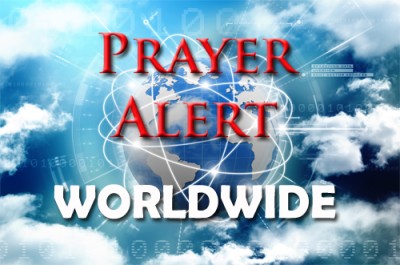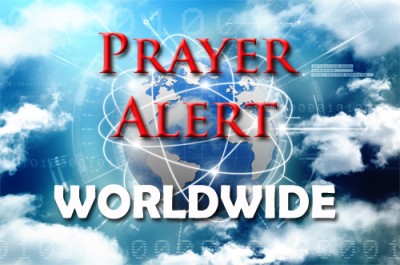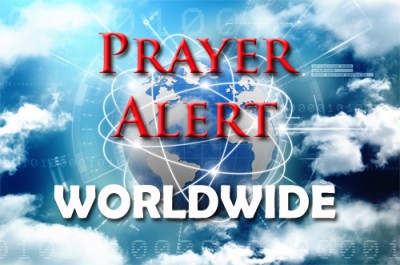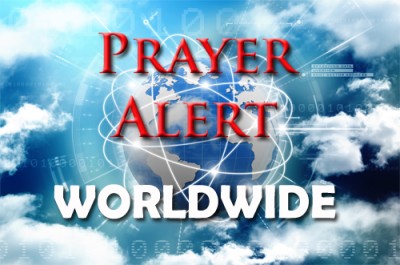Gaza: closer to a ceasefire deal?
19 Dec 2024After months of deadlock, there are new signs that Israel and Hamas could be moving closer to a Gaza ceasefire and hostage release deal. The USA, Qatar, and Egypt are reporting greater willingness by both sides to conclude a deal. Talks are reportedly in a decisive stage. Israel’s defence minister has indicated that they are close to an agreement, though challenges remain, including far-right Israeli cabinet opposition and Hamas's conditions. A three-phase plan proposes releasing civilian and women hostages, with Israeli troop withdrawals and a mechanism for displaced Gazans to return. Subsequent stages include freeing remaining hostages and a broader troop withdrawal. Of 96 hostages in Gaza, 62 are believed to be still alive; a hundred others have been freed through negotiation or military action. The negotiations have been given a new push by Donald Trump’s election; he has warned that a ceasefire deal should be reached before he takes office, because otherwise ‘it’s not going to be pleasant’.
Nigeria: authorities seek to combat oil theft
19 Dec 2024In the Niger Delta, rampant oil theft continues to threaten local livelihoods and the national economy. Armed groups siphon crude oil from pipelines in the region, often operating with impunity and even security cover. These activities cause environmental devastation, health crises, and economic losses. In 2022, Nigeria lost $23 billion to oil theft, so that it lost its position as Africa's top oil exporter. The authorities are committed to fighting this problem by deploying gunboats, engaging vigilantes, and supporting the navy. Increased oil production, now averaging 1.8 million barrels per day, has been attributed to these efforts. However, poverty and unemployment continue to drive pipeline vandalism. Nigeria's inflation rate, worsened by a devalued naira, remains high, but there is official optimism that rising oil output will stabilise the economy.
Canada: Trudeau’s government in turmoil
19 Dec 2024Justin Trudeau’s government is facing turmoil following the abrupt resignation of his finance minister, Chrystia Freeland. This was sparked by disagreements with Trudeau on how to handle the threats made by Donald Trump, who has vowed to impose a levy of 25% on imported Canadian goods unless the shared border is made more secure. Freeland accused Trudeau of prioritising ‘costly political gimmicks’ over addressing the economic risks posed by Trump’s policies. Her departure blindsided the government, bringing Trudeau and his shaky minority Liberals to the brink - exacerbated by losing a by-election in British Columbia. There have been calls from opposition leaders but also members of his own party for Trudeau to resign, and his approval rate is now only 28%. With the next federal election due by October 2025, Canada's political landscape appears increasingly uncertain.
Canada: problems in ‘polar bear capital’
19 Dec 2024In Churchill, Canada, known as the ‘polar bear capital of the world’, residents live with the constant presence of the planet's largest land predator. Safety is a daily concern, with locals advised to be ‘bear aware’ and always ready to fight back if attacked. The town’s proximity to Hudson Bay is crucial to the bears, as the ice forms here first, providing access to seals, their main food source. However, climate change is extending the ice-free season, forcing polar bears to spend more time on land. This has led to a decline in their numbers by nearly half since the 1980s. Despite the long-term challenges, conservation efforts continue, with new technologies being tested to prevent human-polar bear interactions. A longer season during which the bay thaws could mean more ships coming in and out of Churchill, and the mayor is optimistic, but the future for polar bears remains uncertain as climate change intensifies.
The Arakan Army (AA), an ethnic insurgent group, has captured the Myanmar military’s border guard base in northern Rakhine State, marking a significant victory in the country’s civil war. After months of intense fighting, the base, built on a former Rohingya village destroyed during the 2017 crackdown, fell to the AA, leaving the junta humiliated. The AA now controls the entire 270 km border with Bangladesh and much of Rakhine State. The battle was among the bloodiest in the conflict, with over 450 junta soldiers killed. While the AA is setting up its own administration in the region, challenges persist. The area is devastated, with 80% of housing destroyed, widespread displacement, and looming famine exacerbated by a military blockade. The future of the Rohingya population in Rakhine remains uncertain. Though the AA has pledged inclusivity, there are tensions between the Rohingyas and the ethnic Rakhine majority. The AA’s leadership remains quiet on how they will govern amid growing humanitarian concerns.
Exalting Jesus in 2025
We are so grateful for you and all that the Lord accomplished through you in 2024! Because of your faithful prayers and generous support, the ministry of IPC has experienced significant global expansion and impact for the Glory of God!
CELEBRATING 2024! – Here are a few stats on the many prayers mobilized and answered in 2024… It’s not just about numbers… each prayer counts. Indeed… my heart is for us to ‘build IPC one prayer meeting at a time.’
- 110 million people prayed in unity for the 110 cities on 4 Global Days of Prayer (www.110cities.com)
- 2 million people online prayed for America – GDOP for America Sept. 22nd (www.gdop-america.org)
- 1 million people prayed for France and the Summer Olympic Games – (www.lovefrance.world)
- 177,500 Gospel Micro SD cards distributed (Jesus film, gospel tracks, New Testament, etc)
- 180,121 New House Churches Planted
- 30 New Testament Translations started in language groups in the 110 cities

ALVARO’S PRAYERS FOR DAMASCUS...
May I share with you the awesome story of Alvaro - a 7 year old lad from Indonesia who was praying with us during our 30 days of prayer for the Muslim world this last Spring. He is part of our 2BC (2 Billion Children) children in prayer team. He also participates in our 24/7 online prayer room continuing now since 2021.
Alvaro was praying for breakthrough of the Gospel in the city of Damascus and the Lord answered his prayers in some astounding ways. Alvaro was joining his prayers together with 110 million people that we helped to mobilize to pray with us on the Muslim night of power during Ramadan.
Here at IPC, we partner with a ministry called RUN, (Reaching Unreached Nations), and at the same time Alvaro was praying, 200,000 teenagers aged 12-19 were trained and sent to share the good news of Jesus in cities throughout the Muslim world. This work of evangelism combined with global prayer through the IPC prayer networks resulted in 625,000 new Jesus followers - some in the city of Damascus!

Click Here or Scan the QR Code to listen to the full story
What we do...
Through IPC’s 15 worldwide Regional Prayer Councils, it is our vision to Exalt Jesus, doing 4 things together:
- PRAY - around the throne, around the clock, and around the globe.
- INFORM - help inform people what to pray for with coordinated prayer targets.
- EQUIP - teach and train people how to pray effectively for local and global impact.
- CONNECT - people to pray together across nations, denominations and generations.

This next year we are working on:
- Training IPC’s regional leaders
- Continuing the 4 Global Days of Prayer – Psalm 24
- Establishing 24/7 prayer in 110 unreached world cities
- Developing our 3 media hubs
Would you consider making a gift this Christmas season, as an investment in IPC’s exciting vision?!
The value of regular patronage
Our greatest financial need is for regular supporters, regardless of whether it’s $5 or $5,000 a month – it means so much to us and will make a real difference! If you can sow in this way, please use the PayPal regular donation option or contact us for our bank info.
You can give online at www.ipcprayer.org/give or mail your check to The Treasurer, IPC, 313 E Wiser Lake Road, Lynden WA, 98264 USA.
From Indonesia to Damascus, the Lord heard and answered Alvaro’s prayers. Every prayer counts! - Let’s build IPC together one Christ-exalting prayer meeting at a time!
Let’s also be praying for peace, reconciliation and wisdom across Syria (and Damascus) as the people seek to rebuild their nation.
Sincere thanks again for your partnership in prayer and your generous-hearted support.
All Glory to the Lamb!
Dr. Jason Hubbard – Director
International Prayer Connect
www.ipcprayer.org | www.110cities.com | www.moravianmiracle.org
He wants to ‘saturate’ America with Jesus Films
12 Dec 2024Phil Cohn, a passionate evangelist and president of Saturate USA, leads an ambitious project to distribute the Jesus Film and salvation pamphlets to every home in America by 2027. This initiative equips local churches with free resources, enabling members to engage neighbourhoods through door-to-door outreach or door-handle delivery. With an aim to reach 120 million households, Saturate USA has already covered 38.4 million homes across all 50 states. Phil has felt compelled to share the gospel globally since the age of 19. His vision expanded to using the Jesus Film, which has sparked revival worldwide, including starting over a million churches. From Muslim families in America to residents under Taliban rule, countless lives have been transformed. Despite challenges, Phil continues to trust God for miracles, passionately focused on saturating America with the message of Christ. His vision reflects his unwavering belief in God’s power to save.
Child Evangelism Fellowship (CEF) has won a significant legal victory, securing a permanent statewide injunction allowing Good News clubs to operate in all public school districts across Hawaii. These weekly gatherings teach children aged 5-12 about the Bible, memory verses, and praise songs, while also fostering fellowship and fun. Represented by Liberty Counsel, CEF filed a lawsuit against Hawaii education officials after several school districts blocked the clubs from using public school facilities, while permitting secular groups access. The courts ruled that such actions violated the first and 14th amendments of the US constitution, ensuring religious organizations have equal access to public spaces. Fred Pry of CEF welcomed the ruling as a triumph for religious freedom and free speech. Liberty Counsel continues to defend Christian clubs in other states, with plans to challenge similar restrictions in California. This victory highlights the enduring importance of protecting constitutional rights for faith-based organizations in public settings.







